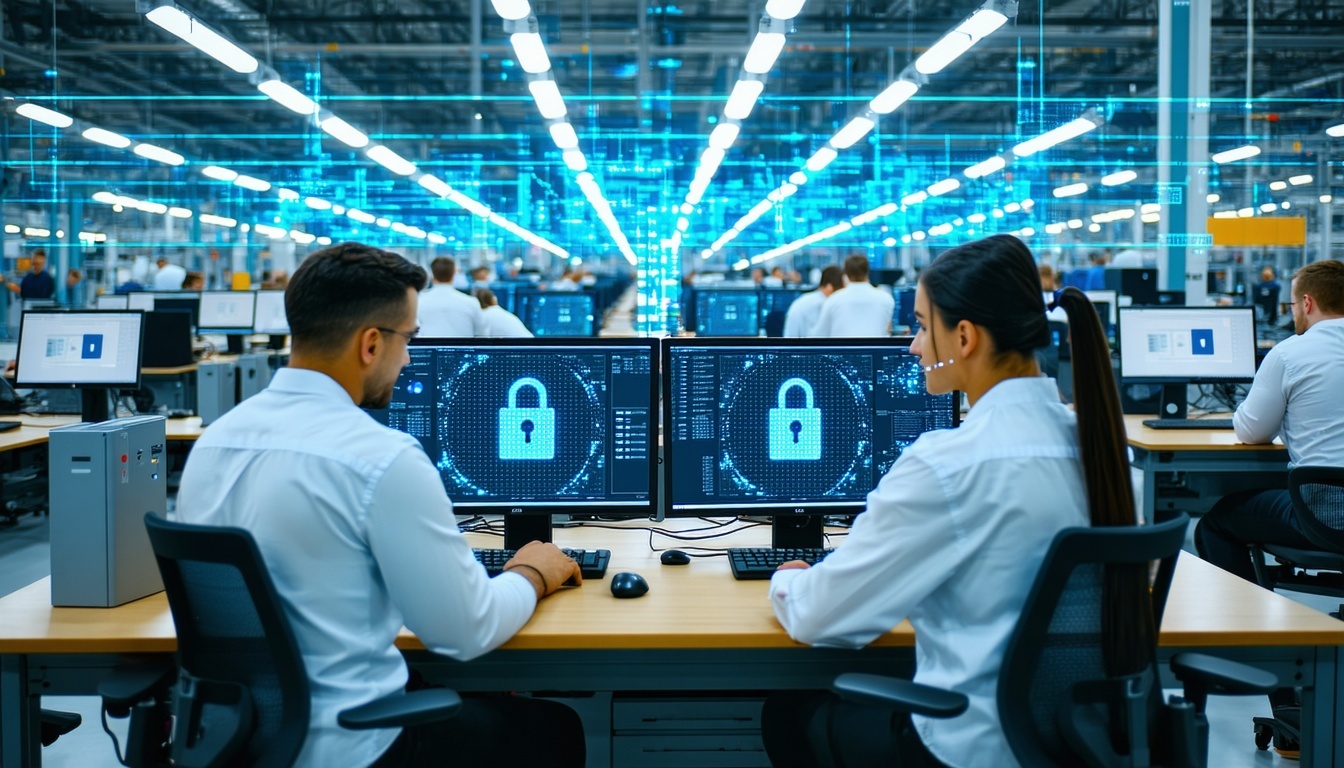.png?width=1200&height=1200&name=Untitled%20design%20(2).png)
Navigating CMMC Compliance Requirements: A Must for IT Managers

In the manufacturing industry, adhering to CMMC compliance is not just a regulatory necessity but also a vital step towards safeguarding sensitive information and maintaining customer trust.
Understanding CMMC and Its Importance in Manufacturing
The Cybersecurity Maturity Model Certification (CMMC) is a unified standard for implementing cybersecurity across the Defense Industrial Base (DIB). For manufacturers, this framework is essential not only for meeting regulatory requirements but also for protecting sensitive information, including Controlled Unclassified Information (CUI). Given the rise in cyber threats, adhering to CMMC standards is critical for maintaining operational integrity and ensuring customer trust.
In the manufacturing sector, where proprietary information and intellectual property are at constant risk, CMMC compliance acts as a safeguard. By adhering to these standards, manufacturers can better protect themselves against cyber threats, which can lead to significant financial and reputational damage.
The Role of IT Managers in Achieving CMMC Compliance
IT managers play a pivotal role in achieving CMMC compliance within manufacturing organizations. They are responsible for implementing the necessary security controls, managing the IT infrastructure, and ensuring that all systems are up-to-date and compliant with CMMC standards. This involves a thorough understanding of the CMMC framework and the specific requirements for their organization.
By leading the compliance efforts, IT managers must coordinate with various departments, conduct regular security assessments, and ensure that all employees are trained in cybersecurity best practices. Their proactive approach is essential for identifying vulnerabilities and implementing corrective actions, thereby ensuring that the organization meets all CMMC requirements.
Key CMMC Compliance Requirements Every IT Manager Should Know
IT managers must familiarize themselves with the key requirements of CMMC, which include Access Control (AC), Audit and Accountability (AU), Configuration Management (CM), Incident Response (IR), and Risk Management (RM). Each of these domains has specific practices and processes that need to be implemented to achieve compliance.
For instance, Access Control involves establishing policies for user access to systems and data, while Incident Response requires a well-defined process for detecting, responding to, and recovering from cybersecurity incidents. Understanding these requirements is crucial for IT managers to effectively guide their organizations through the compliance process.
Practical Steps for Preparing Your Manufacturing Business for CMMC
To prepare for CMMC compliance, IT managers should start with a comprehensive assessment of their current cybersecurity posture. This involves identifying gaps and areas for improvement based on the CMMC requirements. Once the assessment is complete, a detailed plan should be developed to address these gaps.
Implementing necessary security controls, conducting regular employee training, and establishing a robust incident response plan are key steps in the preparation process. Additionally, IT managers should consider working with a consulting firm like FirstCall Consulting, which specializes in CMMC compliance services, to ensure that all requirements are met effectively and efficiently.
Common Challenges and How to Overcome Them
Achieving CMMC compliance can be challenging due to the complexity of the requirements and the resources needed for implementation. Common challenges include limited budget, lack of expertise, and resistance to change within the organization.
To overcome these challenges, IT managers should prioritize their efforts based on risk assessments and focus on the most critical areas first. Leveraging external expertise from consulting firms like FirstCall Consulting can also provide valuable insights and assistance. Additionally, fostering a culture of cybersecurity awareness within the organization can help in gaining buy-in from all employees and ensuring a smoother compliance journey.

.png?width=1200&height=1200&name=Untitled%20design%20(1).png)